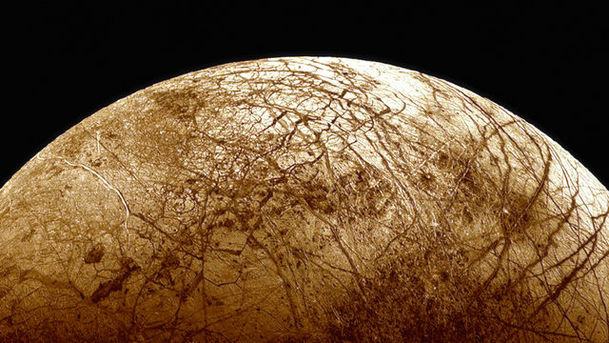2010: Space Odyssey to Europa

Astronomer Paul Murdin explores the idea proposed by Arthur C Clarke in his novel 2010: A Second Space Odyssey that Jupiter's moon Europa might offer suitable conditions for living organisms. Four hundred years after Galileo first discovered Europa, scientists believe that data from the Galileo probe might just prove Clarke right. Clarke's imaginings were recently backed up by pictures and data sent back by the Galileo probe which suggested that Europa was the only place in the solar system, apart from the Earth, that had deep, liquid water oceans, buried beneath an icy crust. Conditions in these oceans - dark and hot - could conceivably support biological life. In the last year, NASA and the European Space Agency have announced their intention to launch a joint mission to Jupiter's moons in 2020. One of their key aims is to investigate Europa - and its potential for life - in greater detail. Paul Murdin is a research astronomer at the University of Cambridge and Treasurer of the Royal Astronomical Society. In this programme he speaks to fellow astronomers, to astro-biologists and to scientists at NASA and the European Space Agency about the importance of Europa and the possibility of finding extra-terrestrial life there. Readings by Joseph Cohen-Cole and David Seddon.